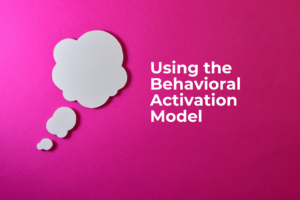Rediscovering Your Worth Beyond the Game
The Empty Echo: Why External Validation Is A Losing Game
We grew up being measured.
By stats.
By wins.
By the number stitched across our backs.
For athletes and coaches, external validation isn’t just common, it’s currency. A coach’s nod, a packed stadium, a social media shoutout… these moments feel like proof that we matter. But what happens when the game ends, the crowd fades, and it’s time to turn in your uniform for the final time?
Too often, we find ourselves chasing a similar high in life after sports: approval, recognition, and achievement without asking: Who am I when no one’s watching?
Why We’re Wired to Seek Validation
Science shows that our brains are hardwired to crave approval. According to research from UCLA, social rejection activates the same brain regions as physical pain, specifically the anterior cingulate cortex and the insula. That’s why a harsh coach or getting benched can hurt just as much as a physical injury.
We evolved to rely on group belonging for survival. Validation once meant safety. But in today’s world, especially after retirement from sport, we confuse validation with value. And that’s where the spiral begins.
Hustling for Approval
After I walked away from coaching, I didn’t realize how addicted I was to being seen as successful. I jumped into corporate jobs, side gigs, anything that would make me feel useful again. I said yes to everything. Burnout wasn’t a red flag; it was a badge of honor.
But underneath the productivity and ambition were negative thought loops: If I slow down…will I lose my job? Maybe I’m not valuable.
The truth? I didn’t know how to validate myself without performance, metrics, or recognition. I had no idea how to be my own best friend, cheerleader, coach, mom, and daughter.
The Problem with the Performance Trap
Here’s what happens when we seek external validation:
- We outsource our self-worth.
- We say yes when we mean no.
- We chase recognition instead of alignment.
- We perform a version of ourselves that looks good but feels hollow.
This creates a deep emotional dissonance, a quiet grief for the person we’ve never truly met underneath the armor of achievement.
And over time, that disconnection turns into suffering.
So What’s the Alternative?
It starts with reprogramming our reward system.
- Name Your Pattern.
When you post online, take a new job, or even show up for a friend…Pause. Who am I doing this for?
Not to guilt yourself, but to develop awareness. - Build Inner Reference Points.
Neuroscience shows that mindfulness and journaling activate the prefrontal cortex, the part of the brain responsible for self-awareness and emotional regulation. The more we notice our need for validation, the less power it holds. - Create Meaning, Not Metrics.
Replace “Were they impressed?” with “Was I honest?”
Replace “Did they like me?” with “Did I like how I showed up?”
Surround Yourself with People Who Reflect Your Essence, Not Your Ego.
True belonging comes from being seen for who we are not what we do.
Your Turn: A Few Questions for You
- What part of your identity is most tied to recognition or approval?
- Who were you trying to impress your younger self, a parent, a coach?
- What would my life look like and feel like if I trusted I was already enough?
Build a New Definition of Success
You’ve done the hard thing already leaving the game. Now it’s time to rewrite what winning looks like.
👉 Book your 1:1 Exit Plan session and let’s build a new foundation. One based on inner truth, not external proof.
Understanding External Validation
How the Behavioral Activation Model Can Transform Your Post-Athletic Life
Graduating from college and retiring from sports can feel like stepping into an unknown territory.
Essential Reads for Female Athletes Transitioning to a New Career and Life
As a female athlete who has just graduated from college, retired, or is on the
Finding Your Purpose After Athletics
As a retired or soon-to-retire female athlete, the transition from the world of sports to





